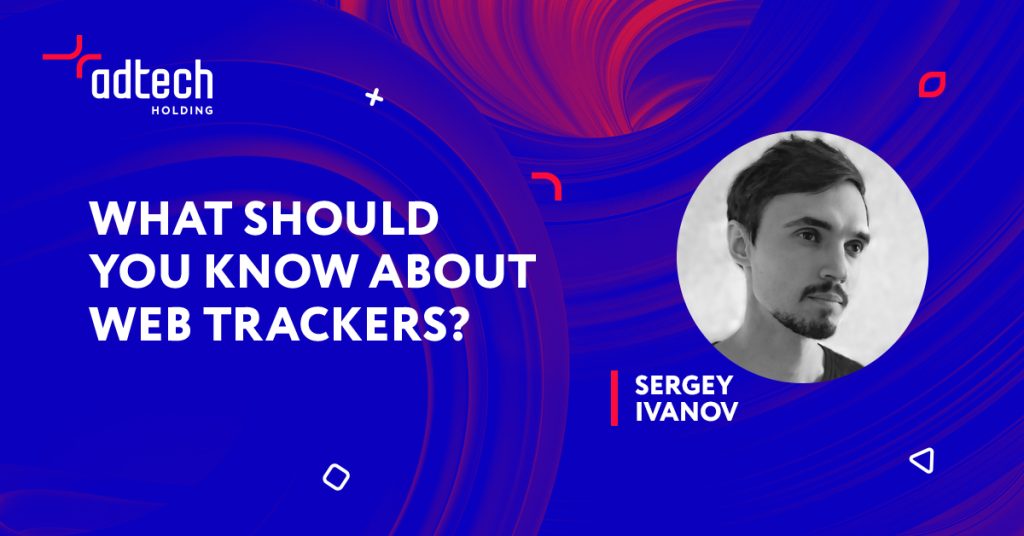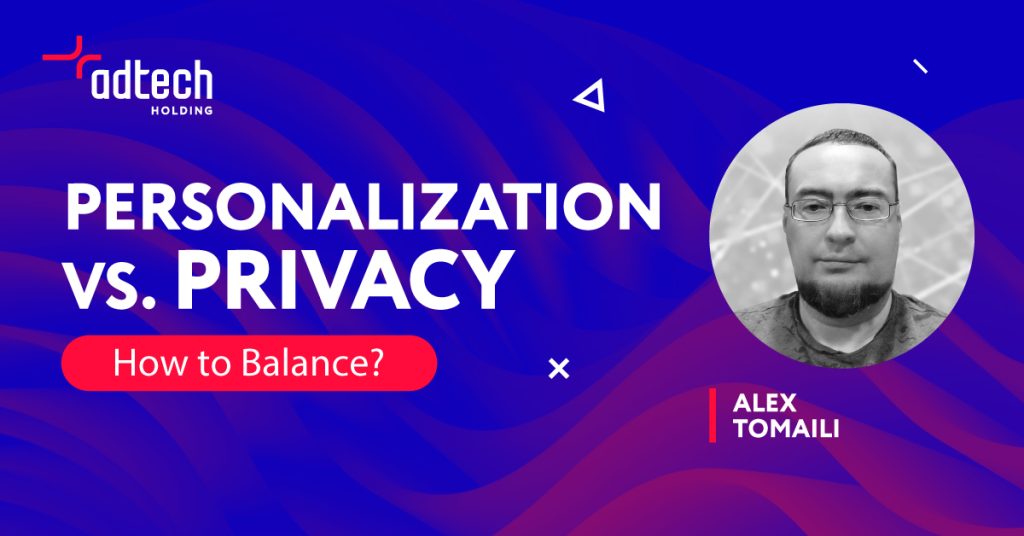Google Privacy Initiatives: Will They Impact AdTech Industry?
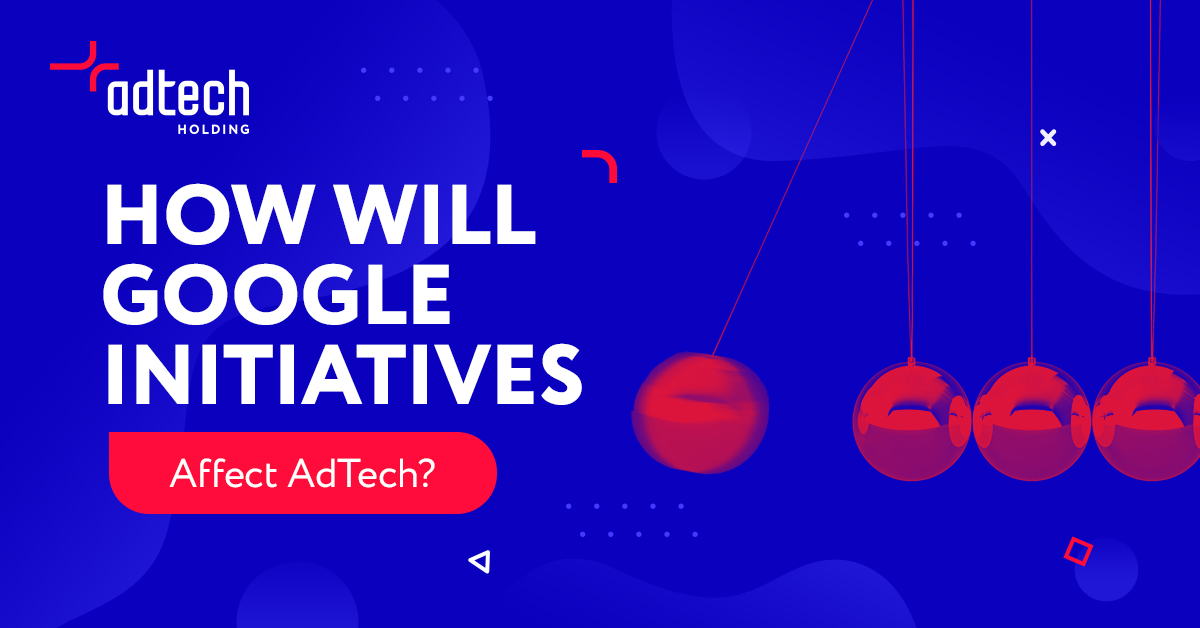
In the past, Google was often criticized for not being ethical enough toward users’ personal information. However, the data privacy trend, possibly starting from Apple’s security strategies, significantly impacted the Google developers’ community. Now, it seems that user data protection is the number one concern — and it definitely affects usual approaches to programmatic advertising.
However, Google doesn’t aim to ruin AdTech businesses and spoil the best user targeting practices. So, we gathered the biggest initiatives that may influence digital marketers and tried to assume if there is a major threat to familiar workflows.
Cookieless Future: The End of Accurate Tracking?
The first Google announcement of the third-party cookies ban caused a wave of big concern among AdTech businesses. No wonder it was so: most advertising networks and ad monetization platforms rely on this technology and use it as their primary (and very efficient!) method of targeting users.
This is how the usual workflow with third-party cookies looks:
- 1. Website A (for example, some eCommerce platform) adds a cookie from an ad network. So, this ad network becomes this very ‘third-party’ responsible for further targeting.
- 2. When a user visits a website, a third-party cookie assigns them a unique ID. Then, this ID is sent back to the user’s browser.
- 3. Now that the browser keeps a unique ID, a user can be tracked at other sites that use the same third-party cookie. When they visit another website, they can see ads redirecting them to Website A.
Here is a scheme of how it works:
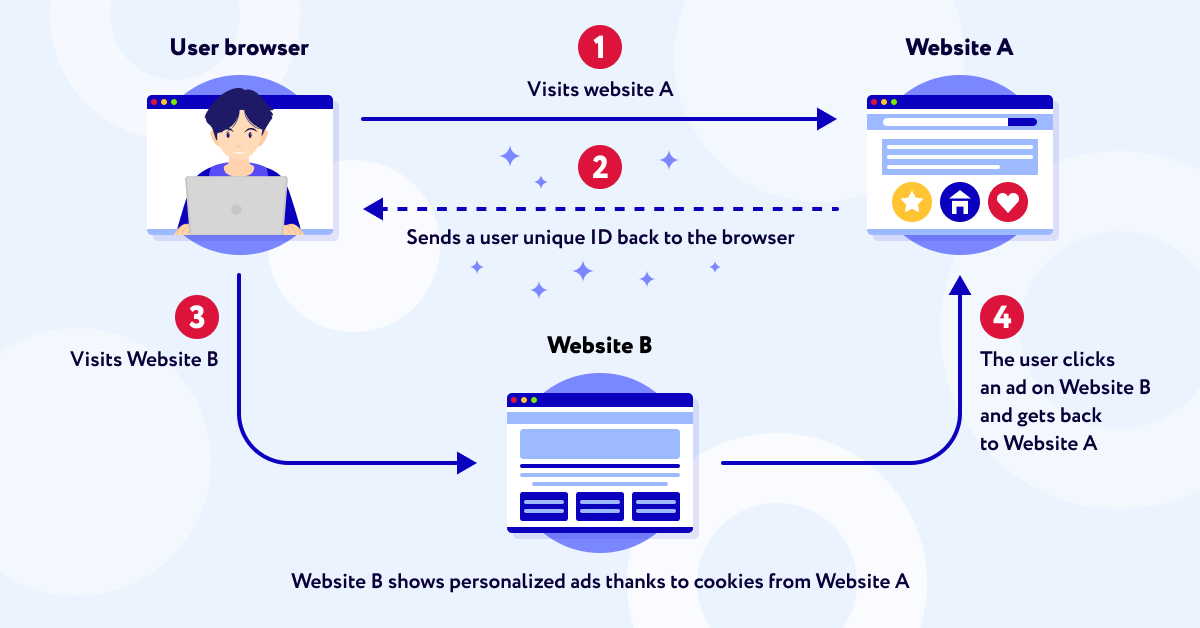
Google’s initiative on the third-party cookies ban implies that this workflow will simply stop on the first step in Chrome and other Chromium browsers:
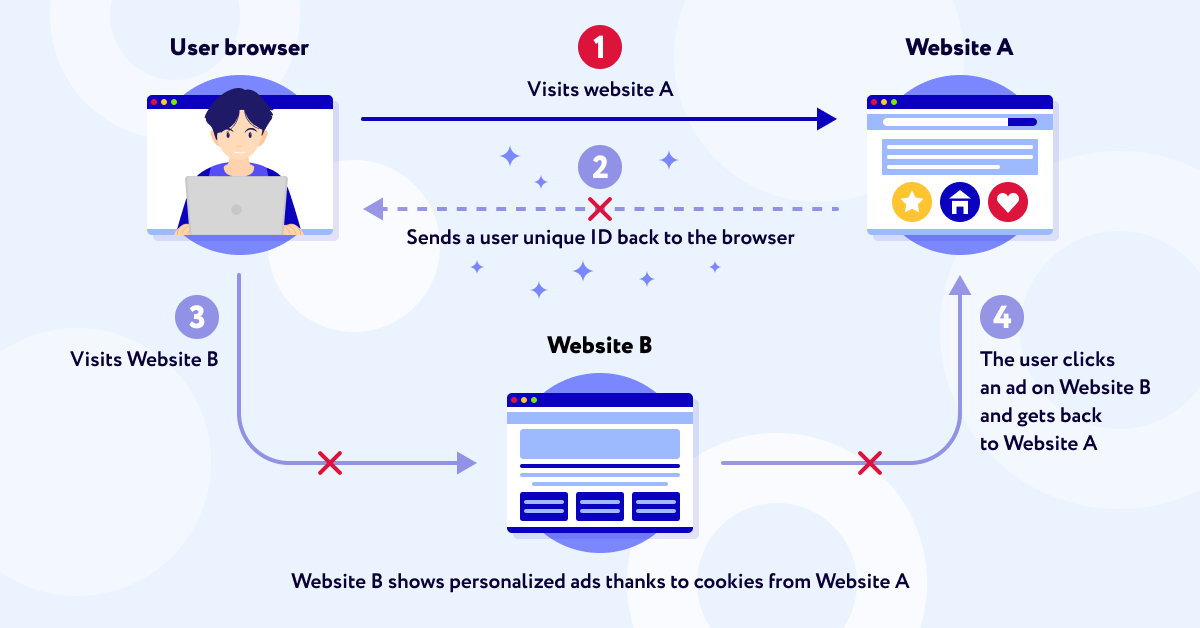
However, user tracking is still required for digital marketing, so the need for an alternative approach is obvious. But is it that complicated and crucial for the AdTech industry businesses?
A range of surveys among marketers shows that all AdTech and MarTech representatives are not concerned with the possible changes too much. For example, a 2020 survey among U.S. brands and marketing specialists showed that a relatively big share of businesses felt this would be fine.
Thus, for example, 40% of respondents were sure that retargeting efforts would stay the same efficient even without third-party cookies, and 35% believed that audience segmentation and A/B testing would not suffer as well.
Peter Garmashov, Head of Products at PropellerAds: Without third-party cookies, there won’t be a history of impressions, and a single user will see the same ad many times. However, modern ad formats are designed in a way that helps mitigate or even avoid this problem. For example, Push Notifications allow saving a user ID while his subscription is active. With OnClick, we can use a first-party cookie instead and track a user within a network.
Besides, there is a wide enough range of alternatives to third-party cookies. Here are some of the possible methods:
- First-party cookies
- User Agent (Client Hints)
- Audience Targeting
- Context Ads
- Email Marketing
We asked Ilya Burov, the Head of Development at the Formats Group of PropellerAds, to share his view, too. He also supposed that a third-party cookies ban does not need immediate action from the company’s side.
Ilya Burov: PropellerAds uses third-party cookies for a pretty small range of tasks. Our architecture was initially built around a different workflow, and we have never relied on third-party cookies that much. Instead, we are based on open browser identifiers that allow us to track users within the websites of our network. This way, we see which formats and ads from PropellerAds a user prefers, and this is enough to provide advertisers with accurate and efficient rotation. We also collect audiences by interests, and this also allows us to refuse third-party cookies painlessly and support the privacy trend. And, after all, Google has shifted the date of switching off cookies again — so there is a big chance third-party cookies will stay with us for a longer time than expected.
To sum up: third-party cookie solutions have been crucial for more than 51 companies, at least in 2021. However, a range of alternative approaches to identifying and tracking users is still available, allowing advertisers and publishers to prepare for the new workflows. Besides, as the owner of the leading ad network, Google is also considering new, more ethical, and privacy-oriented methods, which is likely why the initiative has not been taken into action until now.
User Agent Updates: No More Targeting by OS?
If you google ‘My User Agent,’ you will get the first search result looking somehow like this:
Basically, it is an identifier of a user’s browser and operating system. This ID is sent to any web server a user visits, and it is also a way to track them on a particular level for targeting by device and OS.
For example, if an advertiser needs to show their offers to exactly Android 12 users, information from user agents becomes very handy for setting up such a campaign.
The latest version of Google Chrome (starting from ver. 113 and further) will have a different approach to how a browser will share user agent data with servers. This update is called User-Agent Client Hints. Now, websites will collect user agent information via an API request.
This infographic will show the change in a nutshell:
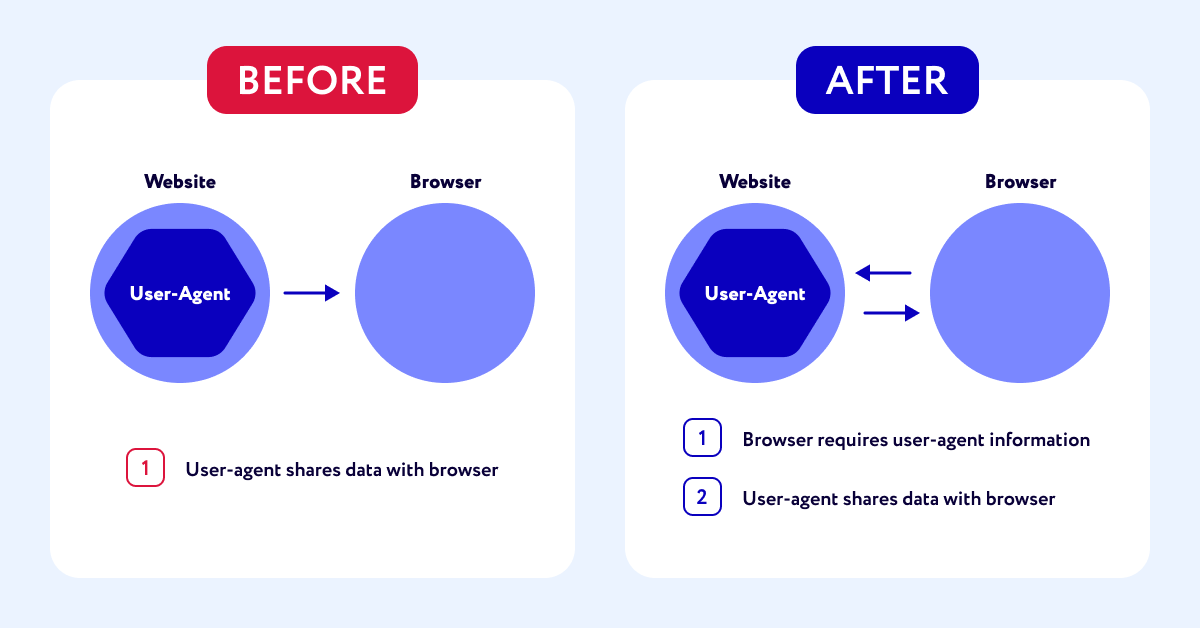
What does it mean for the AdTech industry?
Ilya Burov: This is definitely a more secure solution — now the request comes through Google’s tools, and this will prevent servers from receiving extra data the client would not want to share. At PropellerAds, we quickly adjusted our processes according to the new workflow and learned how to distribute traffic in a way it won’t be lost on each of the two steps of this API request. Besides, Google Ads uses client hints, too, which implies the process will be constantly updated and enhanced.
To sum up: A bit more complicated request for user agent information will not create issues. Instead, it will contribute to building an ethical ecosystem that respects user privacy.
Manifest V3: The End of AdBlock?
Manifest V3 is a new API for Google browser extensions. Its release implies a big range of changes in the work of various extensions, including those blocking ads. Google claims that Manifest V3 is another initiative aimed at boosting security: it seems that before, extensions had way too expanded access to browser processes.
Now, the work of most extensions will be seriously impacted. Speaking about ad blockers, their processes might be totally stopped with the new restrictions coming with Manifest V3 — some even call it a ‘digital execution of AdBlock.’
So, will this, at the same time, mean a renaissance of programmatic advertising, with no more loss of traffic caused by ad-blocking extensions? At first glance, these are really good news: more desktop users will now see ads which might mean an instant growth of impressions and clicks.
However, we at AdTech Holding would not call it a real game-changer. Here are two reasons for that:
- 1High-tech solutions developed within our projects have always minimized the overall traffic loss due to AdBlock extensions.
- 2 Ad blockers only work on desktop browsers, which is a minor share of the whole traffic, with mobile users ahead of the game.
Alex Tomaili, Chief Technology Officer at AdTech Holding: yes, this initiative definitely means great difficulty for ad blockers developers and a kind of relief for advertisers at the same time. However, I suppose there might be a range of possible nuances. First, the extension developers will most likely update their products to fit in the new Manifest V3 rules, and this might mean some extra work for those who use anti-adblocking scripts. Another concern — a much bigger one — is that Google has its own solution for blocking particular ad types, and it is being constantly improved. In the end, Google might consider announcing its own AdBlock with a much wider range of restrictions that advertisers currently face. However, this take is only an assumption, not based on any particular facts.
To sum up: Manifest V3 will prevent ad-blocking extensions from working as before, which might boost conversions from desktop traffic for particular brands. However, it makes sense for marketers to keep their fingers on the pulse and follow the next Google updates related to this initiative.
To Sum Up
Although the balance between user privacy and personalized, precisely targeted ads is becoming more complicated, it doesn’t mean sudden global changes for the AdTech industry. As we can witness, Google implements its new initiatives gradually, leaving much time and space for reconsidering all workflows and practices.

